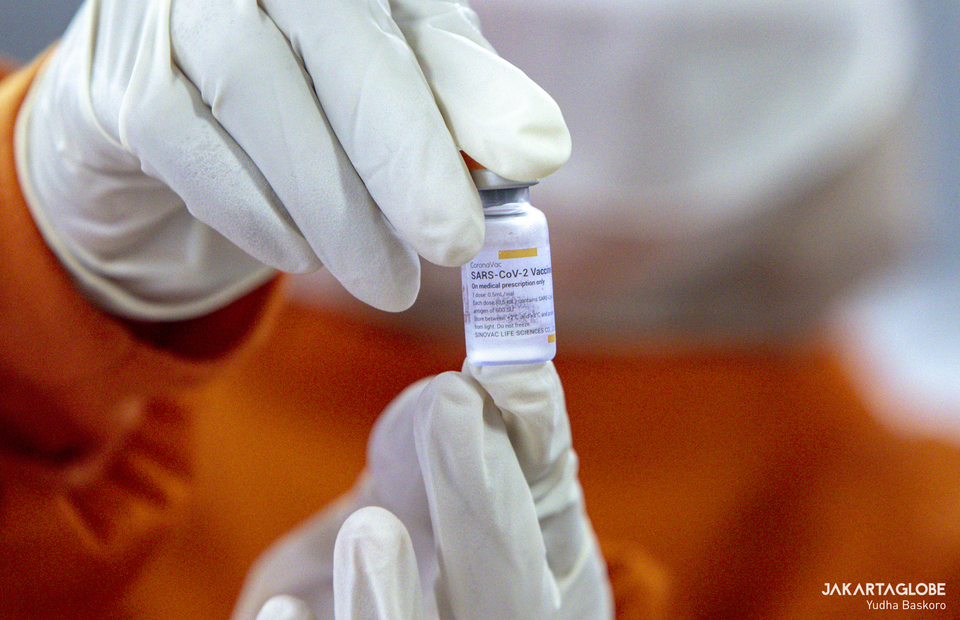JAKARTA -Indonesia has administered 5.48 million doses of Covid-19 vaccine since the campaign began on January 13, with 4.02 million people having received at least one shot, according to Health Ministry data released on Sunday.
Of those figures, 1.48 million citizens have been fully vaccinated with double doses of China’s Sinovac Biotech vaccine.
Current vaccination drive prioritizes elderly citizens and essential service workers, including the few remaining medical workers who have not received the jab during the first stage of the campaign.
The latest data on the number of people having been vaccinated, either with one or double shots, is equivalent to 9.96 percent of the initial target which is set at 40.35 million people.
Eventually, the government aims to vaccinate more than 181 million people or 70 percent of the total population.
Health Minister Budi Gunadi Sadikin said the country will receive an additional 10 million doses of the vaccine through April, meaning that at best there will be 300,000 doses per day.
“The problem is more about vaccine production, not about our vaccination capability,” he said in a video conference with Gadjah Mada University alumni in Jakarta.
He estimated the rate of vaccination will gather the pace in the second half of the year when a larger amount of vaccine begins to arrive regularly.
By June, the number of vaccine jabs is expected to reach 1 million per day.
He said 70 percent of the global population, or 5.5 billion people, need 11 billion doses of Covid-19 vaccine while current production capacity cannot catch up.
Indonesia has placed an order for a total of 426 million doses until the next 15 months, he added.
“The world is grappling for the vaccine and Indonesia is fortunate to already take deliveries,” Budi said.
“You all must be patient because we need to make priority during this first half. We will accelerate in the second half and hopefully we will be able to administer 1.5 million doses per day.”
Indonesia received 1.1 million doses of AstraZeneca vaccine on Tuesday through the UN-backed distribution scheme Covax and sticks to the plan of continuing its use despite reports of blood clots in Europe after it was administered.
The European Medicines Agency (EMA) has confirmed that there was no indication the jab was causing the blood clots, but a growing number of countries including Thailand have delayed the rollout of AstraZeneca vaccine for cautions.
Indonesian Drug and Food Supervisory Agency, or BPOM, issued emergency use authorization for AstraZeneca vaccine on Tuesday, a day after 1.1 million doses of the vaccine arrived at the Soekarno-Hatta Airport in Banten from the Netherlands.
“The BPOM as regulator has examined the safety aspect of AstraZeneca vaccine. We will continue administering this vaccine for elderly citizens and essential service workers,” Health Ministry spokeswoman Siti Nadia Tirmidzi said on Friday.

